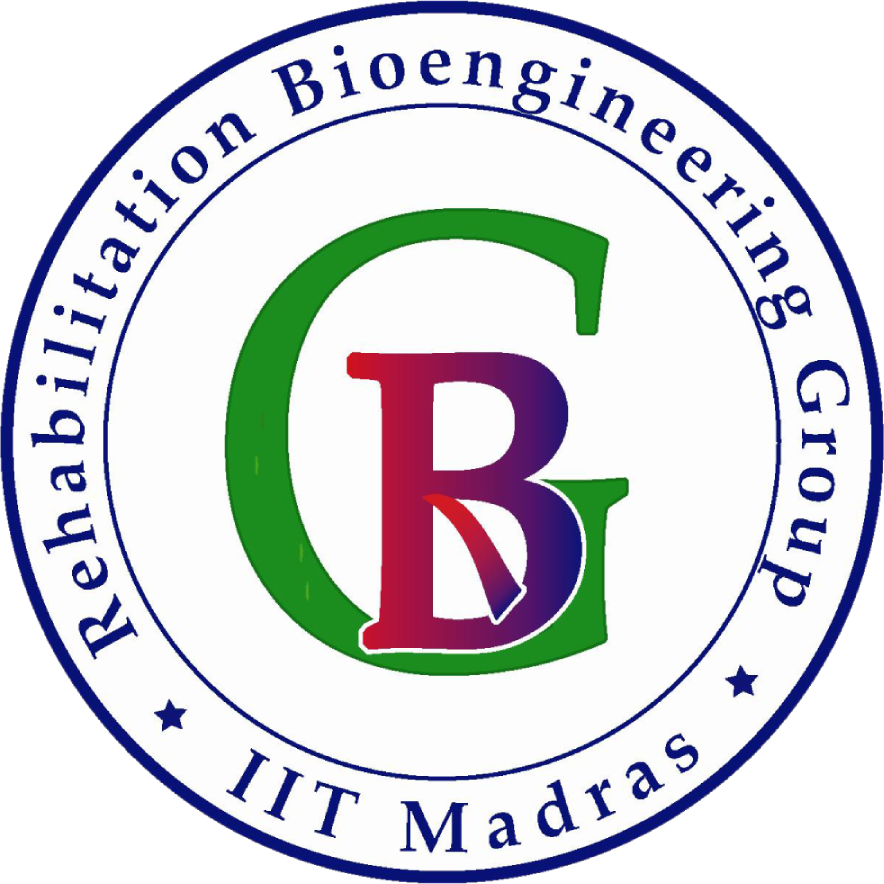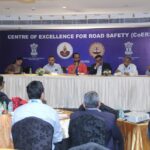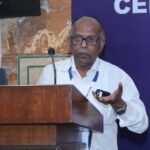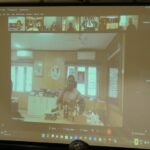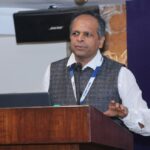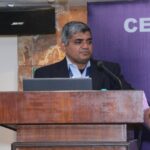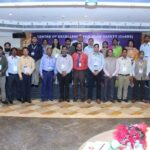
- This event has passed.
Workshop on Strengthening Trauma Care: An Essential Component in Addressing Road Crash Injuries
November 9, 2022 @ 8:00 am - 5:00 pm
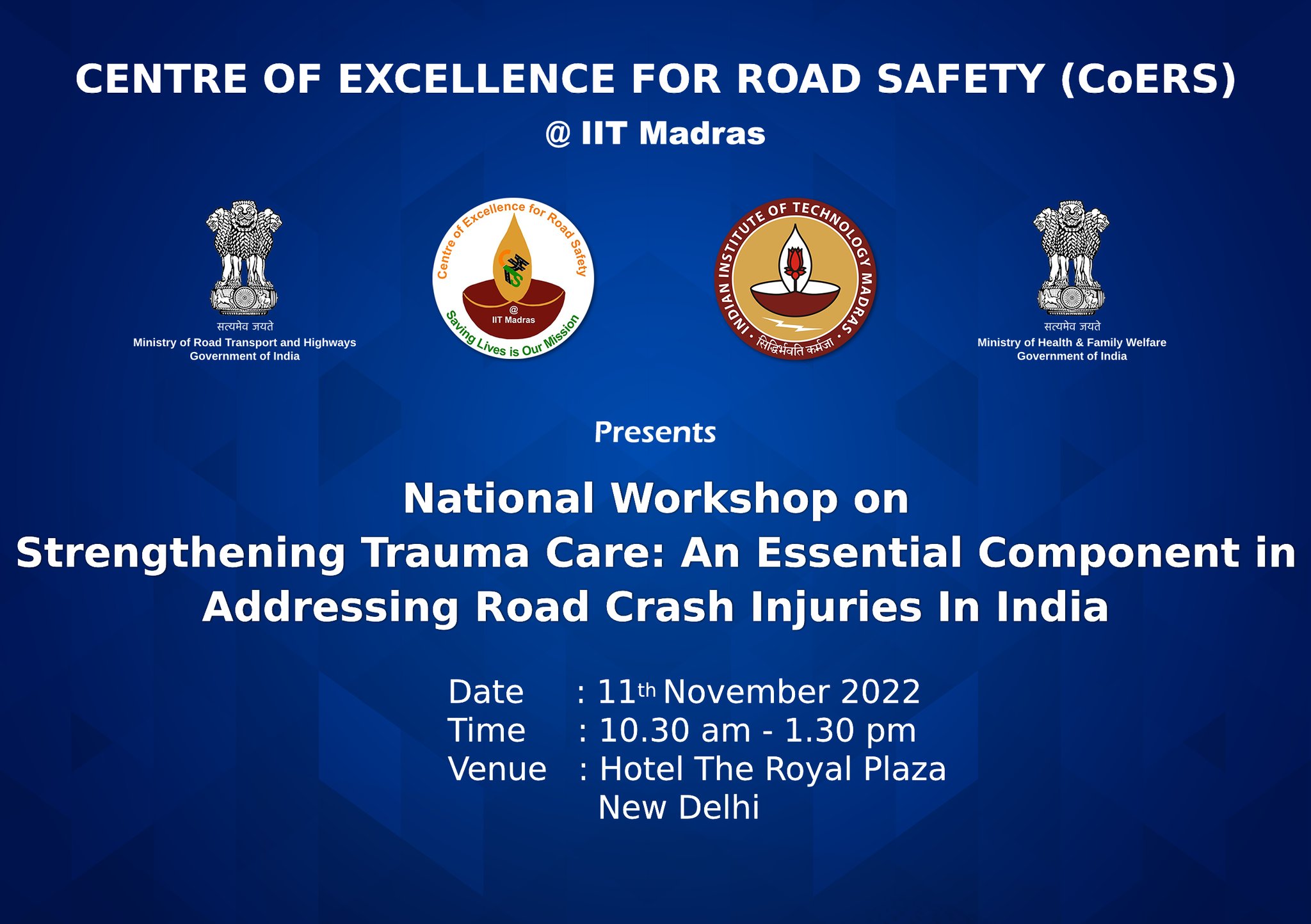
Introduction
Year-on-year, road crash fatalities have been increasing marginally, with 1,51,113 lives lost from road crashes in 2019. To top this up, the number of grievous injuries was 1,36,360 people. Rural India has most of the high-speed road networks that have almost twice the road fatalities of urban India. About 35.65% of road accident fatalities occur on National highways though they are only about 2.03% of total road length. An additional 25.5% of fatalities are reported on State Highways [MoRTH 2019].
The country’s largest share of road fatalities was from the productive age group (18 – 45), accounting for 70% of road accident deaths. These are injuries that lead to admission in hospital and/ or sustained reduction in quality of life. Additional medical expenses, and loss of income due to injuries and disability, not to mention the pain and suffering, degrade the entire family’s quality of life and cumulatively add to the socio-economic burden.
Rational behind Collaboration
In a road crash, about 50% of mortality could occur in the first 10 minutes of injury, especially if it is to the head, spinal cord, cardiac ruptures, or any damage to the major blood vessels or airway obstruction. These victims need immediate care at the scene within the platinum 10 minutes and should be brought to the hospital for definitive treatment within the golden hour [Exhibit 5].
The remoteness of highways, particularly in rural India, increases the response time of ambulances to reach the scene and the time it takes to get to the appropriate healthcare facility. This delay leads to a reduction in the survival rate of the victims. Quality emergency care programs involving all healthcare facilities (primary, secondary, and tertiary) are required to improve road crash victim’s survivability. However, there is an extreme variation in the quality of healthcare services across India, where the best care is available for a small population who can afford it, while basic emergency care is lacking for most of the population.
As a continuation of the data-driven, systems approach to road safety work, the primary focus of CoERS is to bring about the reduction of loss of life from road crashes. This involves vehicle safety, both from occupant and pedestrian perspectives, along with improving road engineering, enforcement and emergency care. CoERS works with Governments, Industry, and Institutions to bring an evidence-based structured approach to road safety. In addition to the various products and processes that will be developed, CoERS advises the policymakers and lead advocacy across stakeholders to improve road safety.
A design thinking approach to trauma and emergency care leveraging experiences and tools developed for implementing disruptive innovations and lean operations is adopted at CoERS, IIT Madras. This approach was used to design and implement a disruptive trauma and emergency care system in Tamil Nadu under the leadership of National Health Mission, TN, as Tamil Nadu Accident and Emergency Care Initiative (TAEI).
Strengthening Trauma Care Workshop
1. Towards bringing in this data-driven, systems approach to trauma and emergency care, a hybrid workshop was jointly convened by the CoERS at IIT Madras (funded by MoRTH, GoI) and the Ministry of Health and Family Welfare (MoHFW), GoI on November 11, 2022. This workshop brought together leadership of the Health and Medical Services Departments in all States/ UTs. This workshop also shared knowledge and best practices of TAEI that uses this approach to trauma and emergency care.
2. This workshop was attended by 126 participants from 11 States/ UTs, of which 32 members had physically participated in New Delhi. The speakers at the event included distinguished leaders working on solutions towards improving road safety, including Shri S. Gopalakrishnan, Special Secretary, Ministry of Health & Family Welfare (MoHFW).
Session 1
Welcome Address Dr Soma Guhathakurta explained the importance of a well-designed and organized trauma care system. Structured and lean in trauma and emergency care includes organized teams, processes, and anticipatory minds this shall be made possible only by a team of professionals with diverse backgrounds who can understand lean principles. Context Setting for a Data-Driven Systems Approach to Trauma and Emergency Care Following this, Professor Venkatesh Balasubramanian took the dais to set the context for the workshop. The workshop aimed to align the health stakeholders across the Country, bring lean processes in healthcare delivery and strengthen using data-driven initiatives. Describing the premise of road safety, he explained the 5E model which includes Education, Enforcement, Engineering, Emergency Care, and Empathy (Human Factors). Professor Venkatesh concluded his talk by summarizing three stages of good trauma program implementation. The first stage is to have a survey as the baseline data, the second stage is to design and implement interventions, and the third stage is the audit. CoERS would like to work on evaluating the trauma center preparedness in India by implementing data collection to perform the baseline survey. Address by the Guest of Honour The Guest of Honour for the workshop was Shri Gaurav Gupta, Director for Road Safety at the Ministry of Road Safety and Highways (MoRTH). He is an officer of the Indian Defence Service of Engineers (IDSE) of the 2003 batch, and in the present capacity as Director (Road Safety) in MoRTH he is working on various policies, schemes & externally aided projects related to road safety.Address by the Chief Guest
The chief guest for the workshop was Shri S. Gopalakrishnan, Special Secretary, Ministry of Health & Family Welfare. He is a 1991 batch officer from the Indian Administrative Services (IAS) from Tamil Nadu Cadre. He has worked at State and Central Government in areas such as transport, HR, commerce, census, food, IT, etc. As Special Secretary, MoHFW, his responsibilities include digital health, hospitals, food safety & standards, etc. He highlighted on various ideas including, A working solution such as the Integrated Road Accident Database (iRAD) can bring all the stakeholders to the same platform to address road safety challenges. However, iRAD as a solution can be effective only when all the stakeholders contribute data to it and use it as the ‘single source of truth’.Session 2: Targeted talks by dignitaries in the workshop
1. ‘Trauma and Emergency Care’ – A Perspective from NITI Aayog The first session was helmed by Brigadier K Venkatnarayan, Officer on Special Duty (OSD) for Health from the NITI Aayog. Brig. K Venkatnarayan is MD (Paediatrics, AFMC), DNB (Paediatrics), DM (Neonatology, AIIMS New Delhi). He was awarded GOC in Command Commendation in 2018 and Chief of Army Staff Commendation in 2020. His work includes National-level policy works about COVID-19 pandemic planning/ vaccination, medical education/ institutions, HRH, trauma emergency care services, early childhood development, costing packages, etc. He stressed on looking into the perspective of emergency and trauma care holistically. In his opinion, by strengthening emergency response and protocols towards treating road accident victims, systems would be established that enable better quality of care for other emergencies also. Strengthening emergency care for road traffic accidents can be a good cohort that can be followed systematically towards improving emergency care as a whole at the hospital or trauma centre. Learnings from Tamil Nadu in establishing the Tamil Nadu Accident and Emergency Care Initiative (TAEI) could provide as a precursor to this endeavour. Brigadier also mentioned that the public also need to be educated on the protocols and guidelines of trauma care and the various benefits and programs available to them at the Government hospitals such as the Good Samaritan Law, 48 hours cashless treatment brought by the Ministry of Road Transport and Highways as part of the amendment to Motor Vehicles Act, 2019. Preparation in the form of IEC modules at the hospitals is one way to reach this information to the public. 2. TN Experience in Trauma Care – TAEI Dr Gomathi Karmegam, Senior Medical Officer, Trauma Care, Tamil Nadu Health System Project (TNHSP) took the dais to talk about Tamil Nadu’s trauma care system – Tamil Nadu Accident and Emergency Care Initiative (TAEI) and share experiences, and best practices adopted in TN. In her address, she mentioned the establishment of TAEI for addressing the gaps identified in trauma and emergency care systems in Tamil Nadu. The Six Pillars of emergency care that are included in the TAEI program are Trauma (road traffic accidents, fall, assault), MI, Stroke, Poison, Burns and Paediatric Emergencies (PREM). In TAEI under the designated leadership under the Commissionerate of Trauma Care, several changes were brought to the structure, process and outcome of the centres across Tamil Nadu. Further, an ecosystem approach was developed with State steering committee chaired by Principal Secretary, H&FW. In Tamil Nadu, 86 Government hospitals were designated as ‘TAEI centres’ across the State. This includes 38 Government Medical College and attached hospitals, 20 District Headquarters Hospitals and 28 Government Sub-District Hospitals located in Strategic Locations along the highways. For capacity development, TN has started an MD Emergency Medicine Course in 23 medical colleges with 5 seats each. In SOPs were standardised at all phases of medical emergencies, from prehospital care to rehabilitation and follow-up.Session 3: Q&A Session
The workshop had an interesting Q&A Session among the stakeholders. Glimpses of the Q&A Session:- Dr Vishal Garg, Assistant Director from PHSC, Punjab posed a question on the required funding for the establishment and recurring expenses for TAEI centres. A data-driven mechanism to compute the burden due to trauma was registered through TAEI application on a daily basis. This data provided as a justification to allocate funding for strengthening TAEI centres in the State. Prof. Venkatesh Balasubramanian added to this by sharing that TAEI was a mindset change driven by a few dedicated doctors in the State to achieve intrinsic maxima for each hospital. This program has developed into a process-focused system focused on achieving the goal of saving lives. During the inception stages, the discretionary funds by the hospital were used for establishment. The complete establishment of the TAEI center took about 3-4 years.
- Tmt. Dr. S. Uma I.A.S., Project Director, Tamil Nadu Health Systems Project (TNHSP) joined on virtual conference from Tamil Nadu. She congratulated the initiative by CoERS and shared her experiences from working with Prof. Venkatesh Balasubramanian in establishing TAEI in TN. She invited all the States to visit Tamil Nadu to understand the working of TAEI program in real time. The TAEI budget in TN were being complimented by State Government funding, NHM funding and World bank funding for the trauma care program. She also added that the number of MD seats in TN has increased, providing more talented resources trained for emergency care programs in the State.
Session 4: Presentation on iRAD Health Module
The penultimate session of the day was a presentation on the iRAD Health module delivered by Dr Mohan of the National Informatics Centre Services Inc. (NICSI). Dr Mohan has a Doctorate in Urban and Regional planning from IIT Kharagpur and a masters in statistics from Madras University. He has an experience of 30 years of working and leading various e-governance projects. In the iRAD project, Dr Mohan was leading from NIC on behalf of NICSI. He is continuing with NICSI as a principal consultant. The Integrated Road Accidents Database (iRAD) was addressing a gap in the crash data collection by capturing facts/ data and collating them on-site instead of relying on a recollection from their memory of the observed crash site. iRAD enables quality facts are collected from the data without being biased by opinions of the observer.Session 5: Discussion on Challenges in the trauma-emergency ecosystem at the hospital level in India and the way forward
The final session for the day was a panel discussion on challenges faced in trauma-emergency ecosystem and the way forward. The panel was moderated by Smt. Roli Khare, Director, Ministry of Health & Family Welfare. The panellists included:- Dr Krishnan Kumar, Deputy Director General, Directorate General of Health Services.
- Dr Amit Gupta from the Jai Prakash Narayan Apex Trauma Centre of All India Institute of Medical Sciences in New Delhi
- Dr Mathew Varghese, Head of the Department of Orthopaedics at St Stephens Hospital, New Delhi
- Dr Surinder Goyal, in charge of the emergency department at of Safdarjung Hospital, New Delhi.
- Dr B Mohammed Asheel, National Professional Officer and country focal point for injury and disability prevention for the WHO (India).
Summary and Way Forward
The workshop was concluded by Professor Venkatesh Balasubramanian. The ABC of Trauma from administrative perspective is the Absolute Budget Certainty. The trauma centres in the Nation will need to perform a baseline survey to identify their gaps and upgradation needs. With appropriate funding the strengthening of infrastructure and manpower could be planned. An integrated systems approach should be adopted to build infrastructure and processes across all stages of trauma care. Deskilling process and upskilling people are two main objectives towards brining lean in trauma care. Multiple training programs has been established in different States at various levels of trauma care starting with general public to specialists. However, there are challenges due to lack of trainers to deliver these programmes. Compulsory Rotatory Residential Internship (CRRI) training is one of the way forward for the young medical professionals to get a holistic training.- Panel Discussion on ‘Challenges in the trauma-emergency ecosystem at the hospital level in India and the way forward’.
- Talk on ‘iRAD Health Module’ by Dr Mohan, Principal Consultant, National Informatics Centre Services Inc. (NICSI).
- Dr. S. Uma IAS, Project Director, Tamil Nadu Health System Project, addressing the gathering.
- Talk on ‘TN Experience in Trauma Care – TAEI’ by Dr Gomathi Karmegam, Senior Medical Officer, Trauma Care, Tamil Nadu Health System Project
- Talk on ‘Trauma and Emergency Care’ – A Perspective from NITI Aayog’ by Brigadier K Venkatnarayan, Officer on Special Duty (OSD) for Health from the NITI Aayog.
- Address by the Chief Guest, Shri S. Gopalakrishnan, Special Secretary, Ministry of Health & Family Welfare (MoHFW).
- Address by the Guest of Honour, Shri Gaurav Gupta, Director for Road Safety at the Ministry of Road Safety and Highways (MoRTH).
- Workshop context set by Professor Venkatesh Balasubramanian, Professor, Department of Engineering Design IIT Madras and Head, Centre of Excellence for Road Safety (CoERS)
- Dr Soma Guhathakurta, the senior project advisor at the Centre of Excellence for Road Safety (CoERS), delivered the welcome address for the workshop
- Participants of the Strengthening Trauma Care workshop
